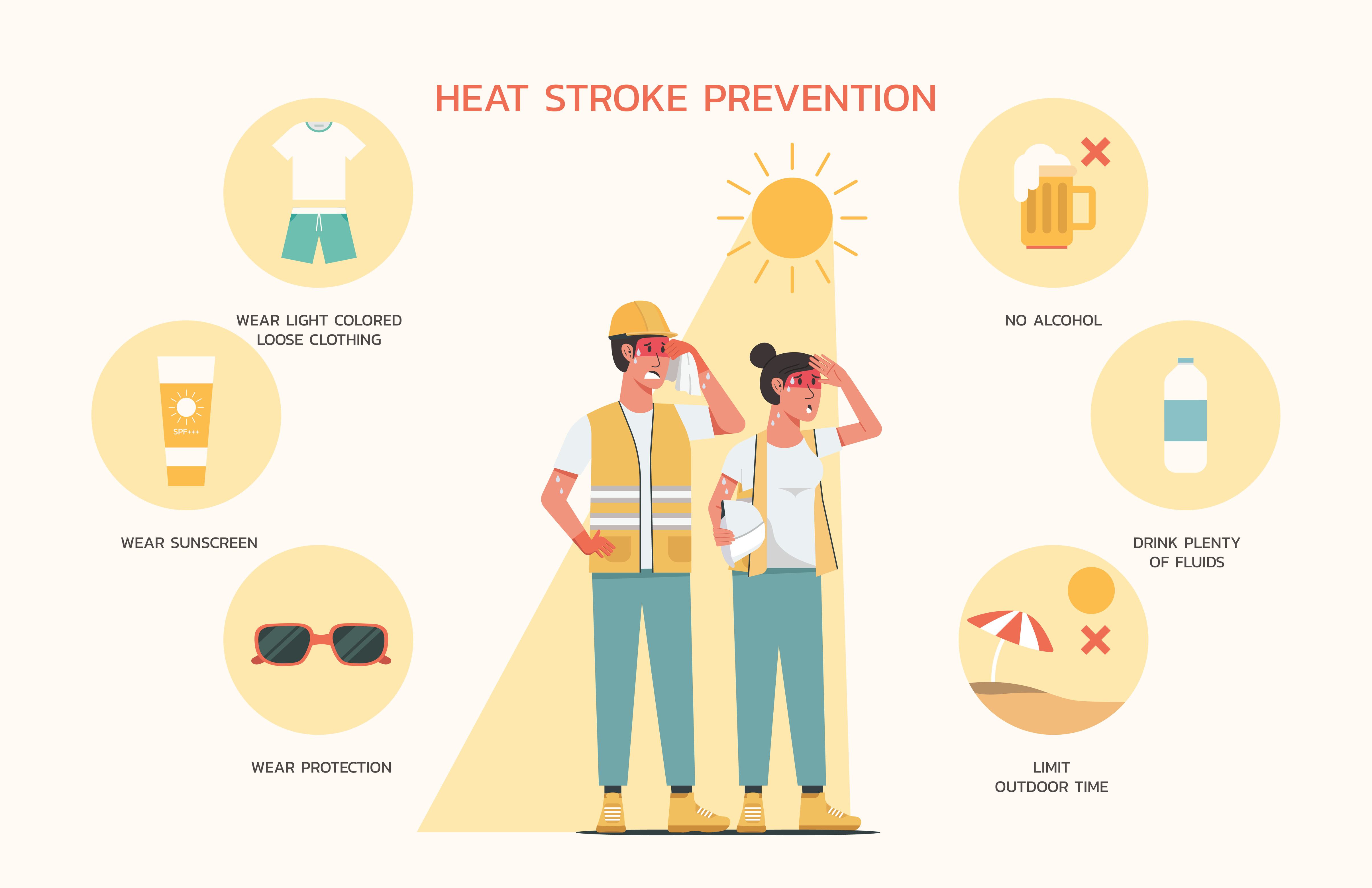Keep Cool in the Summer Heat
Source: Amy Kostelic, associate extension professor
Amid Kentucky’s extreme summer temperatures, high humidity and prolonged heat can make being outdoors uncomfortable and dangerous. During this time, you need to know the signs and symptoms of heat-related illnesses and how to treat them. These include heat exhaustion, heat cramps and the most serious- heatstroke (also known as sun stroke).
Heat-related illnesses occur when a person’s body cannot properly cool itself. These sicknesses can occur at any age, but people at greatest risk include infants and children up to four years old, adults 65 and over and those who are overweight. Additional factors that may lead to heatstroke include exertion in hot weather, sudden exposure to hot weather and lack of air conditioning, Certain illnesses, and medications, such as antihistamines and antipsychotics, can also increase risk of heat-related illnesses. Wearing too many layers or clothes that prevent sweat from evaporating, drinking alcohol and becoming dehydrated may trigger heatstroke.
Older adults are at risk for many reasons. Sweat glands, which help cool the body, often diminish in number with age, and those remaining may not function as well as they once did. Existing health problems, especially involving the heart, lung and kidneys and some medications can also increase older adults’ risk of heat-related illness.
You can take steps to protect yourself and your loved ones from overheating. Here are some tips from the Centers for Disease Control and Prevention:
· Keep up-to-date on the weather forecast and stay in your home or another air-conditioned facility, such as a mall, public library or heat-relief shelter if the temperatures and humidity are forecasted to be extreme.
· Avoid strenuous outdoor activities, such as exercise or gardening, during the hottest hours of the day.
· Stay hydrated by drinking plenty of water, fruit or vegetable juices. Drink even when you are not thirsty. Avoid caffeine and alcohol.
· Wear loose, lightweight and light-colored clothing.
· Avoid using your oven and cover windows that receive direct sunlight to keep your house cooler.
· Take cool showers or baths to help yourself cool down.
Know the signs of heatstroke—high body temperature, dizziness, fatigue, lack of coordination, cold and clammy skin, racing heart rate, headache, nausea/vomiting, changes in cognition and/or behavior, rapid breathing, muscle spasms and/or cramps and ankle swelling. Heatstroke is a potentially life-threatening condition that requires immediate medical attention.
If you are a neighbor, friend or family member of an older adult, regularly check on them during warm days and extended/excessive hot periods to ensure they stay cool and hydrated and have access to air conditioning and proper clothing. Seek immediate medical attention if someone has signs of a heat-related illness.


